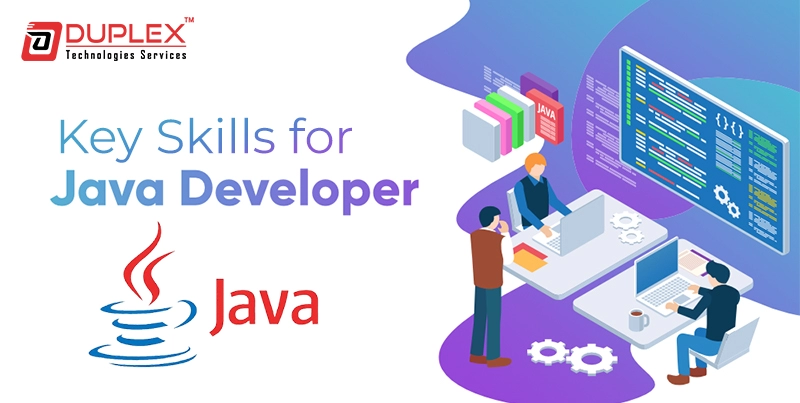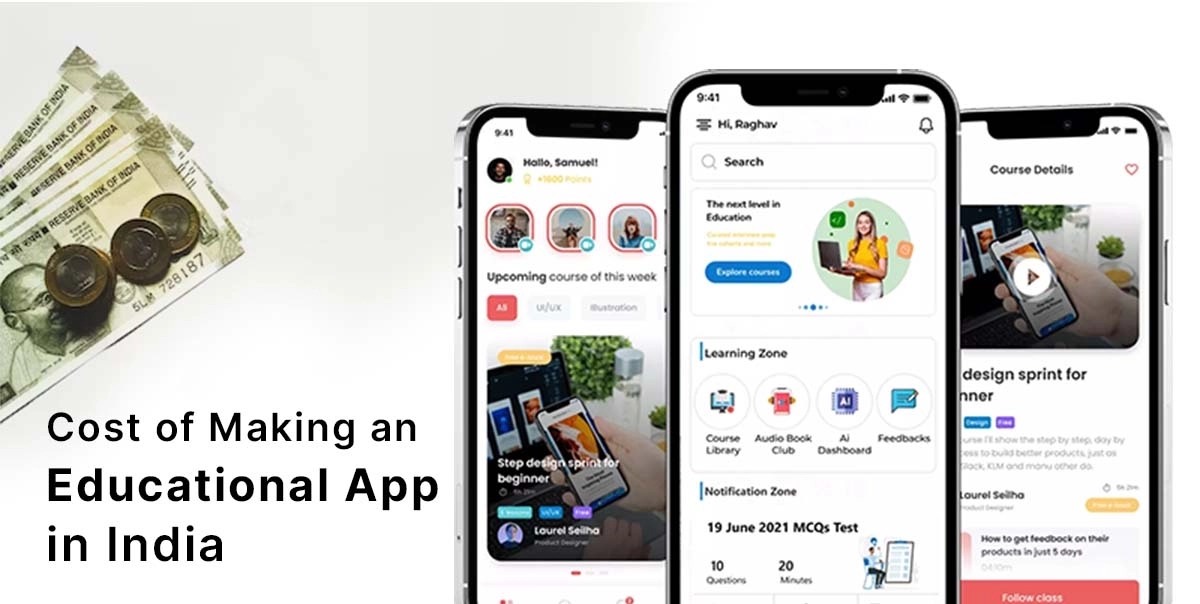Key Skills for Java Developers | skilled Java developer

Posted By : Deepank Joshi, Posted Date : Sep 21, 2024
Key Skills for Java Developers
In the ever-evolving landscape of software development, Java continues to stand strong as one of the most popular and versatile programming languages. As businesses increasingly rely on Java-based applications, the demand for skilled Java developers remains high. Whether you're just starting your journey as a Java developer or looking to enhance your existing skill set, understanding the key skills required in today's market is crucial for success. In this comprehensive guide, we'll explore the essential skills that every Java developer should possess to thrive in the industry.
Table of Contents
Core Java Proficiency
At the heart of every successful Java developer's skill set lies a deep understanding of core Java concepts. This foundational knowledge is non-negotiable and forms the basis upon which all other Java-related skills are built.
Object-Oriented Programming
Java is fundamentally an object-oriented language, and mastering OOP principles is crucial. This includes:
- Understanding classes, objects, inheritance, polymorphism, and encapsulation
- Implementing interfaces and abstract classes effectively
- Utilizing OOP design patterns to solve common programming challenges
Java Syntax and Libraries
A thorough grasp of Java syntax is essential. This includes:
- Proficiency in writing clean, efficient Java code
- Understanding and using Java's built-in libraries and APIs
- Familiarity with the Java Collections Framework for data manipulation
- Knowledge of exception handling and multi-threading concepts
Java Virtual Machine
Understanding how the JVM works can greatly enhance a developer's ability to write efficient code:
- Grasp the basics of JVM architecture and memory management
- Understand garbage collection processes and optimization techniques
- Familiarity with JVM tuning for improved application performance
Java Development Kit (JDK) and Java Runtime Environment (JRE)
Knowing the differences and relationships between JDK and JRE is important:
- Understand how to set up and manage Java development environments
- Familiarity with different JDK versions and their features
- Ability to troubleshoot JRE-related issues in deployed applications
Web Development Frameworks
In today's digital landscape, web development skills are crucial for Java developers. Proficiency in popular Java web frameworks can significantly boost a developer's marketability.
Spring Framework
The Spring Framework has become almost synonymous with Java web development. Key areas to focus on include:
- Understanding the core principles of dependency injection and inversion of control
- Proficiency in Spring Boot for rapid application development
- Experience with Spring MVC for building web applications
- Familiarity with Spring Security for implementing authentication and authorization
Hibernate
As an Object-Relational Mapping (ORM) tool, Hibernate is widely used in Java applications:
- Understanding ORM concepts and how Hibernate implements them
- Proficiency in mapping Java objects to database tables
- Experience with Hibernate Query Language (HQL)
- Knowledge of Hibernate's caching mechanisms for performance optimization
JavaServer Faces (JSF)
For developers working on enterprise Java applications, JSF is a valuable skill:
- Understanding the JSF lifecycle and component model
- Experience with JSF frameworks like PrimeFaces or RichFaces
- Ability to integrate JSF with other Java EE technologies
Database Technologies
Java developers often work with data-intensive applications, making database skills essential.
SQL and Relational Databases
A solid understanding of SQL and relational database concepts is crucial:
- Proficiency in writing complex SQL queries
- Understanding database design principles and normalization
- Experience with popular relational databases like MySQL, PostgreSQL, or Oracle
NoSQL Databases
As applications scale, NoSQL databases are becoming increasingly popular:
- Familiarity with NoSQL concepts and when to use them
- Experience with popular NoSQL databases like MongoDB or Cassandra
- Understanding of data modeling in NoSQL environments
Java Persistence API (JPA)
JPA is the standard API for ORM in Java:
- Understanding JPA annotations and entity relationships
- Experience with JPA providers like Hibernate or EclipseLink
- Proficiency in JPQL (Java Persistence Query Language)
DevOps and Build Tools
Modern Java development extends beyond just writing code. Familiarity with DevOps practices and build tools is increasingly important.
Version Control
Git has become the de facto standard for version control:
- Proficiency in Git commands and workflows
- Understanding of branching strategies and merge conflict resolution
- Familiarity with Git hosting platforms like GitHub or GitLab
Continuous Integration/Continuous Deployment (CI/CD)
Knowledge of CI/CD practices and tools is highly valued:
- Experience with CI/CD tools like Jenkins, Travis CI, or GitLab CI
- Understanding of automated testing and deployment pipelines
- Familiarity with containerization technologies like Docker
Build Tools
Efficient build management is crucial for Java projects:
- Proficiency in Maven or Gradle for dependency management and build automation
- Understanding of project object model (POM) structure
- Experience with creating and managing multi-module projects
Testing and Debugging
Quality assurance is an integral part of the development process, making testing and debugging skills essential for Java developers.
Unit Testing
Writing effective unit tests is crucial for maintaining code quality:
- Proficiency in testing frameworks like JUnit or TestNG
- Understanding of test-driven development (TDD) principles
- Experience with mocking frameworks like Mockito
Debugging Techniques
The ability to efficiently debug Java applications is a valuable skill:
- Proficiency in using IDE debugging tools
- Understanding of common Java errors and exceptions
- Experience with remote debugging techniques
Performance Testing and Optimization
As applications grow, performance becomes increasingly important:
- Familiarity with profiling tools to identify performance bottlenecks
- Understanding of Java performance optimization techniques
- Experience with load testing tools like Apache JMeter
Soft Skills and Professional Development
While technical skills are crucial, soft skills and continuous learning are equally important for a successful career as a Java developer.
Communication and Teamwork
In modern development environments, the ability to work effectively in a team is essential:
- Strong verbal and written communication skills
- Experience with agile methodologies and collaborative development practices
- Ability to explain technical concepts to non-technical stakeholders
Problem-Solving and Analytical Thinking
Java developers often face complex challenges that require strong problem-solving skills:
- Ability to break down complex problems into manageable components
- Critical thinking skills for evaluating different solutions
- Creativity in approaching unique development challenges
Continuous Learning
The field of Java development is constantly evolving, making continuous learning crucial:
- Stay updated with the latest Java versions and features
- Regularly explore new tools, frameworks, and best practices
- Participate in developer communities and open-source projects
Code Quality and Best Practices
Writing clean, maintainable code is a hallmark of a skilled Java developer:
- Adherence to coding standards and best practices
- Understanding of SOLID principles and clean code concepts
- Experience with code review processes and giving/receiving constructive feedback
Get in touch with Duplex Technologies at +91-9452000089 for hiring Java Developers
In conclusion, becoming a proficient Java developer requires a combination of technical expertise, practical experience, and soft skills. By focusing on these key areas – core Java proficiency, web development frameworks, database technologies, DevOps practices, testing and debugging skills, and professional development – you can position yourself as a valuable asset in the competitive world of Java development. Remember that the journey of a Java developer is one of continuous learning and adaptation. Stay curious, keep practicing, and always be open to new technologies and methodologies. With dedication and the right skill set, you can build a rewarding and successful career in Java development.
Contact us today at +91-9452000089 to discuss your project and let Duplex Technologies help you with the best Java Developers.




















































































